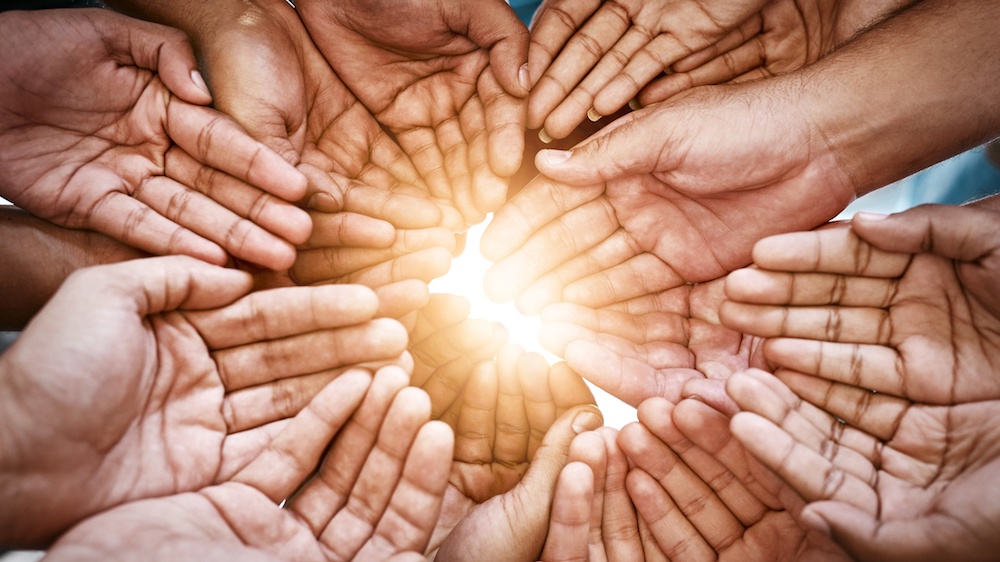If you’re interested in sharing your opinion on any cultural, political or personal topic, create an account here and check out our how-to post to learn more.
Opinions are the writer’s own and not those of Blavity's.
____
If the pandemic has taught us anything, it’s that people need other people. Membership in community helps us see our stake in our neighbors’ dreams and struggles, as well as our own. It deepens our understanding of others. We could use that in America right now. And that healing can begin with a robust investment in national service.
The American Rescue Plan, signed into law by President Biden this month, includes $1 billion for national service, the largest amount in decades. This funding will help provide living wages to young Americans and create additional positions that are accessible to Americans regardless of their financial means. Now we need to find the best ways to put that money to work in communities. And no one knows how to do that better than local leaders who are on the ground. That’s why everyone from the leaders in the statehouse to those in the schoolhouse should be at the forefront of deciding where to direct national service resources.
As a former governor, I know this firsthand. When I was in office, we wanted to find a way to unite the 351 cities and towns across the commonwealth. We decided to bring together eighth graders for a year of service. Project 351 was born, and in the decade since, nearly 4,000 youth have helped nearly one million people — and formed a strong bond among themselves and with the communities they served. When young people have the opportunity to work together, perceived differences take a back seat. We need to give more states and localities this chance.
National service has the potential to heal communities across America. And ensuring those opportunities are equitable is essential to building a stronger, more tolerant, more understanding national identity as we heal from a year of unprecedented challenges.
Religious, regional and racial differences have always been a part of the American equation. But in recent years those differences have inflamed into divisions. Social media amplifies the outrage, encouraging us to choose sides. More and more Americans are losing the ability to relate to one another, or have lost interest in doing so, jeopardizing the best hope on earth for a successful democracy.
National service opportunities provide many wonderful ways to help our communities, but they also provide a valuable lesson to those who serve by placing young people from different walks of life, geography, race and class together — giving young Americans the ability to learn about each other. We should expand opportunities so that service is as routine and expected as going to high school. Whether military or civilian, domestic or abroad, serving alongside other Americans of different backgrounds to meet some unmet need not only benefits those served, but has a profound impact on the service provider. It breaks down barriers and makes it possible for us to see beyond the cartoon version of another that we so often presume.
There is widespread public support to expand national service: Serve America Together found that 77% of Americans want Congress to expand programs like AmeriCorps, the Peace Corps and Teach for America. Nearly half of young Americans are currently interested in serving, yet there are only positions available for fewer than 5% of them. Moreover, low wages are a significant barrier to service. Expanding national service should mean making the opportunity available to young people, regardless of their financial circumstances. Service members should be paid a living wage and given health care and, where necessary, child care.
In his inaugural address, President Joe Biden reminded America that “unity is the path forward.” He was right. I doubt that most Americans will objectively quarrel with the values to which we pledge allegiance. But the habit of squeezing each other into over-simplified boxes limits us, and makes it easy to divide us. We are divided in large measure because we don’t know each other.
National service can help us know each other. It can help bridge our divides, end social marginalization and remind us that we have a stake in our fellow Americans. It will not substitute for the hard economic and other policy choices in front us. But it can be a tool to address them while also, over time, making it easier for us to solve them.
____
Deval Patrick is the former two-term Governor of Massachusetts and is co-chair of the Serve America Together Campaign.
